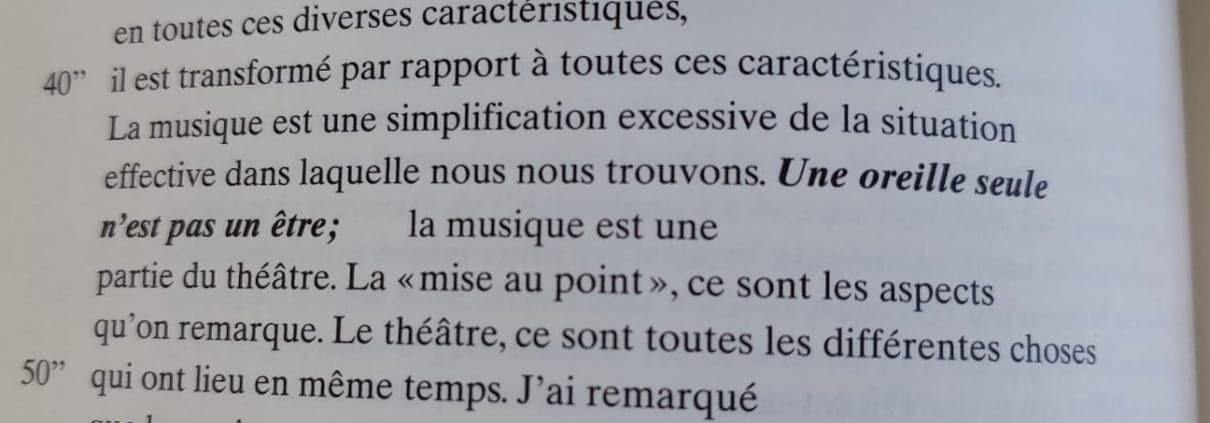An ear alone is not a being
Sound creation, performer : Claudine Simon; Libretto : Bastien Gallet; Actress : Manon Xardel; Sound design : Vivien Trelcat; Lighting designer (in progress)
Commissioned by the Printemps des Arts festival, Monte Carlo.
Premiere on 2 April 2026 in Monaco.
Music is part of theatre. The “focus” is on the aspects that we notice. Theatre is all the different things that happen at the same time. I have noticed that music is all the more alive for me when listening to it, for example, does not prevent me from watching.
John Cage, Silence, 1961
A concert piano awaits its performer. Everything is ready for the recital. The pianist enters, greets the audience, and approaches the instrument.
But before playing, before sitting down at the keyboard, before striking the first chord, she must examine the piano, study the intricacies of its mechanics, follow the line that leads from her finger to the string, the energy that one body transmits to another, and what other body, imaginary this one, sonorous before being musical, is born from this game that must be repeated night after night. You have to open it up, plunge your hands inside, play it differently, forget the keys, pluck the strings directly, add accessories and devices, mutate it, stage and sound the monster behind the king.
For, before being an instrument, the piano is a machine that echoes and amplifies gestures, transmits and transforms, gallops and strikes as much as it whispers and chirps. A machine for training unruly bodies: spreading fingers, rounding arches, strengthening muscles, training postures. Less an instrument than a complex and shifting set of norms and expectations, orders and fantasies, constraints and desires.
This is the story told by An ear alone is not a being : that of the piano as a body and an imaginary construct, how it materialised a specific musical order (temperament) and survived its collapse, how it was constantly dethroned and reinvented, augmented to the point of becoming unrecognisable (electric then electronic) but always present and active, carrying with it a repertoire that continues to haunt our world.
Bastien Gallet


